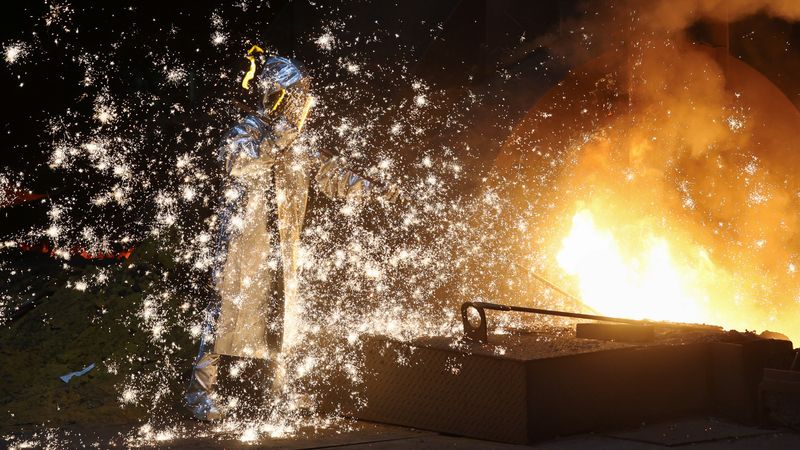By Maria Martinez
BERLIN (Reuters) -German producer prices rose in December at a slower rate than the previous month as inflation eases in Europe's largest economy due in part to lower energy prices, data showed on Friday.
Producer prices of industrial products rose 21.6% on the same month last year, the federal statistics office reported, compared with analysts' expectations for the rate to ease to 20.8% from 28.2% in November.
Compared with the previous month, prices fell 0.4%, less than the consensus for a drop of 1.2%. This was the third consecutive monthly fall, as energy prices ease.
"The good news is that upward momentum is clearly easing at this point," LBBW bank senior economist Jens-Oliver Niklasch said.
The month-on-month decline in December was driven by a 1.0% dip in energy costs, due to easing prices for natural gas and mineral oil products. In November, energy prices had fallen by 9.6% compared with October.
Germany's producer price index peaked at 45.8% year-on-year in August and September. There has been a downward trend since then.
"Today's figures strengthen hopes that the core inflation rate for consumer prices will also reach its high point in the coming months," said Ralph Solveen, head of economic research at Commerzbank (ETR:CBKG).
The German government is expected to revise down its inflation forecast for 2023 later this month from 7% to 6%, a source told Reuters citing its draft annual economic report.
Over the whole of 2022, producer prices for industrial products increased by 32.9% compared to 2021.

"This was the highest price increase since the start of the survey in 1949," the office said.
The statistics office offers more details on producer prices on its website.